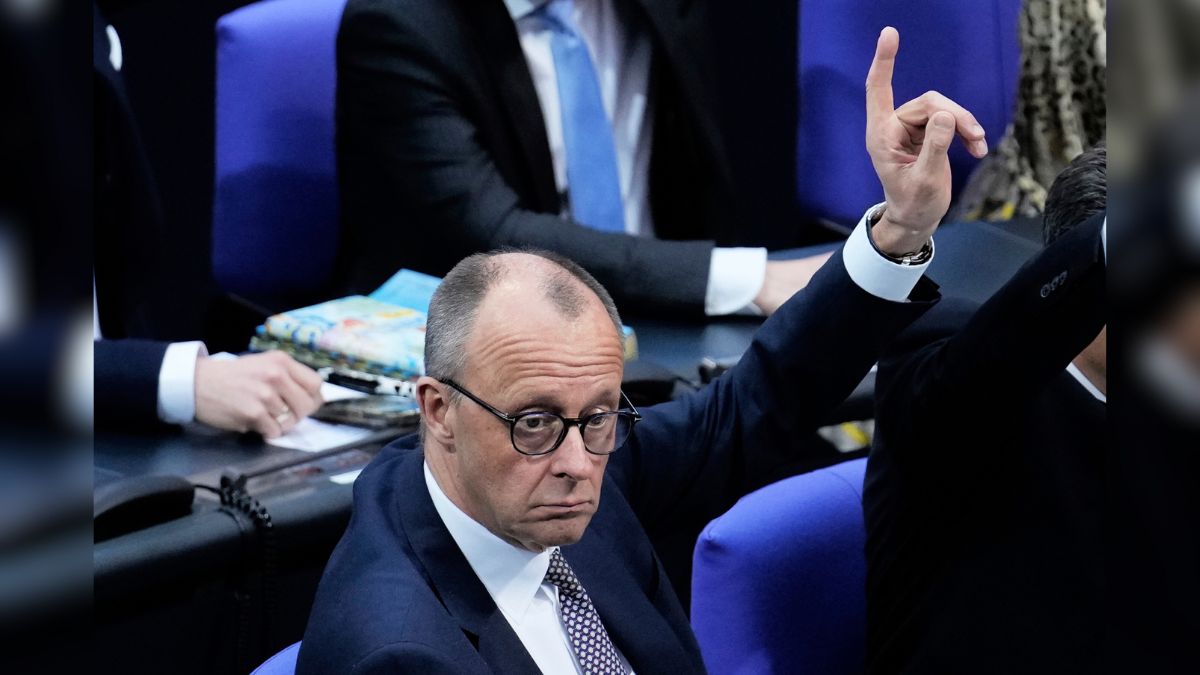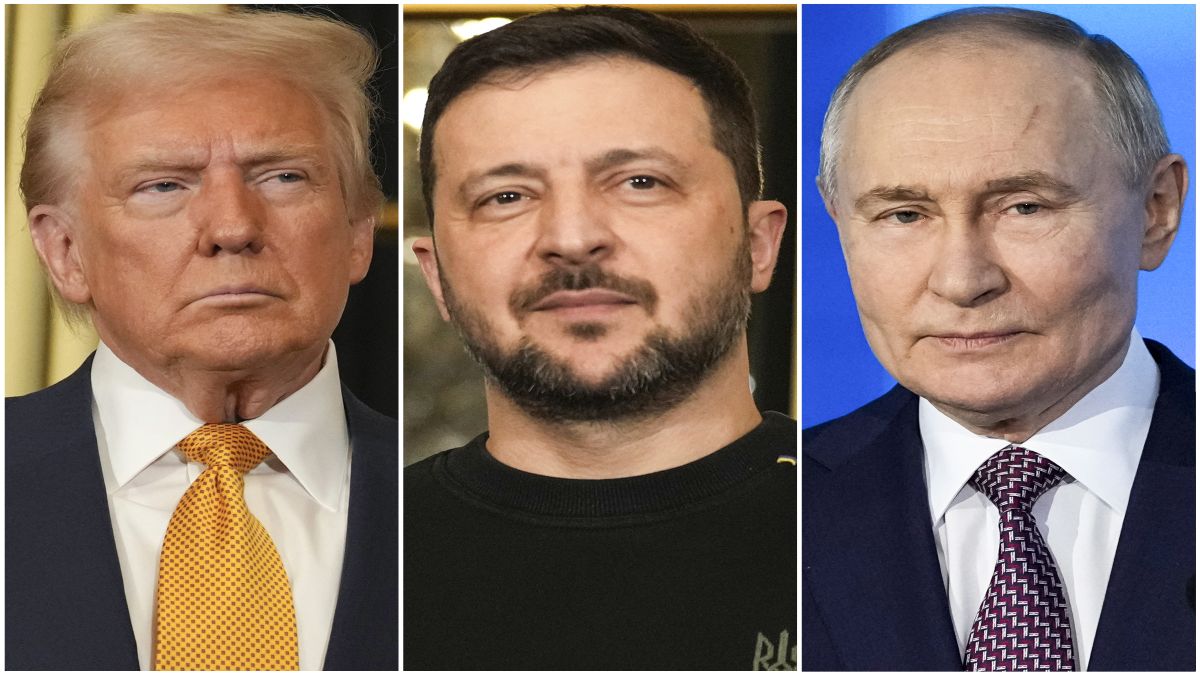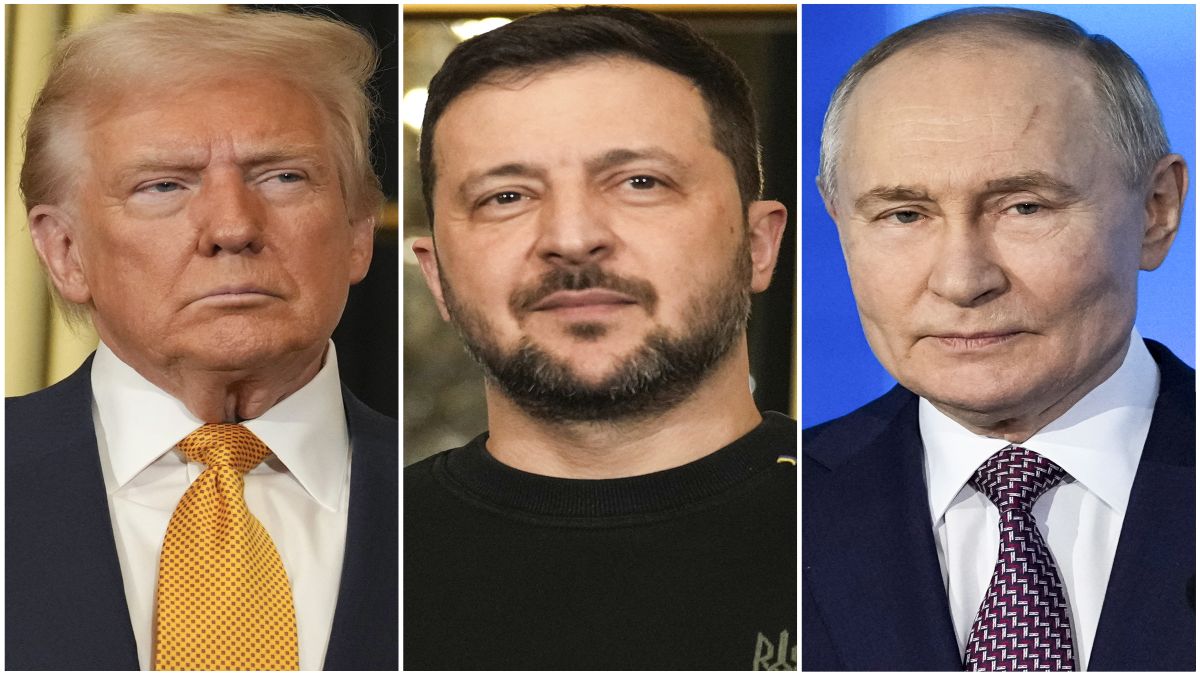Germany has taken a historic step by amending its constitutional debt brake, enabling a massive €1 trillion investment in defence and infrastructure. This policy shift, discussed in depth during a session at the Raisina Dialogue in New Delhi, is a result of changing priorities of the European nation’s allies.
The session, held as part of Firstpost’s Ideas Pod series on Day 3 of the dialogue, featured Adrian Haack, director of the Konrad Adenauer Stiftung (KAS) office in India, and Bastian Schneider, Judge at the Karlsruhe Administrative Court in Germany. The discussion was moderated by Prathik S Vinod, associate producer at Firstpost.
This strategic shift in its debt ceiling marks a departure from Germany’s long-standing fiscal conservatism, aiming to bolster national security and stimulate economic growth.
Historically, Germany has adhered to a stringent “debt brake” (Schuldenbremse) enshrined in its Basic Law, limiting the federal deficit to 0.35 per cent of GDP. This policy was implemented to maintain fiscal discipline and prevent excessive national debt.
However, recent tensions, notably the already deteriorated relations with Russia and uncertainties surrounding transatlantic alliances with the US, have prompted a reassessment of these fiscal constraints.
German Chancellor-elect Friedrich Merz, leader of the Christian Democratic Union (CDU), has been instrumental in advocating for this paradigm shift. In a landmark decision, the Bundestag approved Merz’s proposal, allowing for significant borrowing to fund defence enhancements and infrastructure modernisation.
The approved plan allocates €500 billion over 12 years for infrastructure projects, with €100 billion specifically earmarked for climate-related initiatives. The remaining funds are designated for defence spending.
Who’s in-charge?
One critical aspect of this development is the timing of the constitutional amendment. The outgoing parliament expedited the approval process before the newly elected Bundestag convenes.
While some argue that immediate action was necessary to address pressing security concerns, others believe such significant decisions should await the new parliament’s input.
“The main reason is the majorities in the new Parliament will be different than in the old. And in order to amend what you call the debt brake, which is like the borrowing ceiling, which is enshrined in the Constitution, you need a supermajority to amend it. And it won’t be easy to achieve that in the new Parliament. So they chose to do it in the old one,” Schneider explained.
“It was contested in constitutional court, actually, with several motions, but the Constitutional Court ruled unanimously that it’s legal to do so, because up until the moment that the new parliament comes together, the old parliament has every authority,” added Schneider.
The CDU/CSU bloc and the Social Democrats (SPD) have shown support, highlighting the need for robust defence mechanisms and economic revitalisation. The Green Party, initially hesitant due to concerns over climate commitments, eventually endorsed the plan after assurances of substantial funding for environmental initiatives
Echoing this sentiment, Haack said, It is actually a wide consensus among different parties, from left to conservatives."
Conversely, the socialist Left Party has criticised the move, cautioning against potential future indebtedness and advocating for more measured fiscal policies.
Schneider pointed out that the “the new parliament has every right to vote on what this will be spent on, so the government cannot spend without the approval of the new parliament."
Why now?
One of the most significant aspects of this policy shift is the increase in defence spending. This move is seen as a direct response to global security concerns, particularly Russia’s invasion of Ukraine and the shifting priorities of the United States under President Donald Trump.
“It all started, of course, with the defence spending,” Haack said. “And in the past, there was no President Trump in the White House. So actually, we are now in a situation where the Europeans in total, but the biggest country in the middle of Europe, on the forefront, has to replace a lot of capacities which were in former decades provided by the US.”
Schneider highlighted the importance of Germany stepping up in European defence: “Germany cannot be a big Switzerland. It won’t work if we just want to be a big country which doesn’t have to do anything with the conflicts in Europe, because Germany is just too big. It’s kind of our destiny. Europe won’t work without Germany taking some kind of leadership role.”
Cautiously agreeing to US’ shift in focus, Schneider said, “The Trump Administration, also demands Europeans to take a bigger burden themselves in European security, which I think is very legitimate in substance, because we can’t expect the taxpayers of Michigan and Idaho to provide for German and Italian security.”
“I think Germany and Europe also has always been a very loyal ally to the United States. But as the United States are shifting more towards the Pacific, towards China, they cannot, do 100 per cent on both theatres. And so I think Germany has to step in, to do its part, and just to put numbers to it, the fact that Europe and Germany depend on Americans to cope with Russia is not Trump’s fault.”
Is defence the No.1 priority? And, from where?
Regarding defence spending, a pivotal question arises: Will Germany’s increased budget primarily finance the procurement of American weapons, or will it foster the development of indigenous and European defence capabilities?
This decision carries significant implications for Europe’s strategic autonomy and defence industry. Investing in domestic defence infrastructure could stimulate local economies, create jobs and reduce dependency on external suppliers. Conversely, procuring foreign weapons might expedite military readiness.
Schneider noted, “I think it’s [Germany] also going to be spent on American weapons, just because they are very cutting edge. They are leading the world in many fields. And we want to buy from America when it comes to F-35s for example.”
But with a note of caution, he added, “However, if you buy weapons from another country, you also want to rely on that weapons to work when you need them, and not to have some other government limit its usage.”
Haack talked about Europe’s existing capabilities, particularly France’s nuclear umbrella. “Germany is a technically high developed country, and there are already nuclear weapons within the EU. You mentioned France, so you could just scale that up.”
Highlighting history, Haack reflected, “Because if you look at history, which country gave away its nuclear weapons, it was Ukraine in 1994 with the Budapest Memorandum, and they got their sovereignty and their territory guaranteed by Russia in order to give away their nuclear weapons after the Soviet Union collapsed.”
“So what is the result? It was not a very good deal, as we see, because the Russians didn’t keep their word. And many countries, not only Germany, also Poland, also Finland, actually have the technical know-how to equip themselves,” Haack pointed out.
While €100 billion is allocated for climate-related projects, questions remain about the balance between traditional infrastructure developments and green investments.
What is Germany’s global role?
Beyond Europe, Germany’s foreign policy and aid commitments are also being reevaluated. The country has reduced its foreign aid assistance while increasing military and infrastructure spending.
The Trump-led administration has significantly cut down on its global role in providing aid.
Haack acknowledged this shift but pointed out that Germany remains a major donor globally: “Since the US is now cutting US aid immediately, Germany is ending up being the biggest provider globally, and we have a tremendous budget. It is 20 billion euros in the federal budget and an additional 10 billion spread on other budgets.”
The Russian question
Germany’s increased defence spending is widely seen as a response to Russia’s aggression in Ukraine, but Trump’s foreign policy has also played a role in pushing Europe toward greater self-reliance.
Haack remarked, “Without Russia bordering Europe, we would have a very minor defence spending. But actually, the disruption which Trump brought into that calculation is that people now argue if the US is still reliable, like in the past, and therefore these kinds of big steps were never necessary before.”
Schneider also pointed out that Europe’s reliance on the US for security was a political choice, rather than an economic necessity. “Russia has the GDP of Italy. The European Union has a GDP that is eight and a half times larger than that of Russia. So if Europe really wants it, we should be able to cope with Russia on our own, and the fact that we can’t is also the result of political decisions on favouring social spending over defence spending. And that has to change, and it will change.”
Raisina Dialogue is a premier conference on geopolitics and geo-economics hosted by the Observer Research Foundation in collaboration with India’s Ministry of External Affairs.
Firstpost partnered with the Raisina Dialogue to bring exclusive content to its viewers and readers.
The event, inaugurated by Prime Minister Narendra Modi on March 17, featured New Zealand’s Prime Minister Christopher Luxon as the chief guest and keynote speaker.


)
)
)
)
)
)
)
)
)



